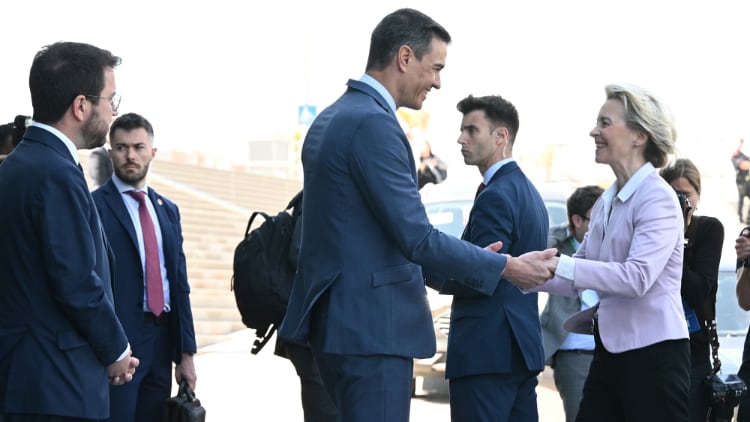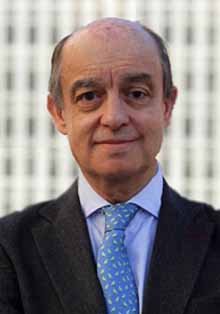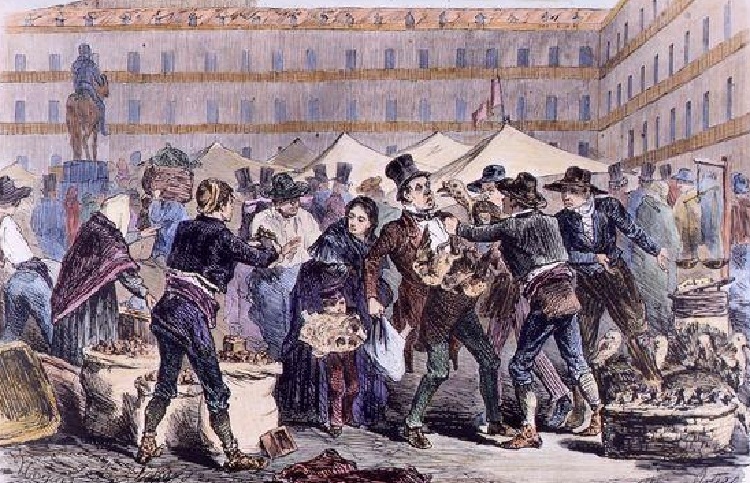Ángel Collado
Paralysed, divided and without the support of the Catalan pro-independence supporters who were fundamental in 2018 for coming to power, Pedro Sánchez’s government is plunged into a crisis of coexistence that threatens the legislature.
The communist sector of the cabinet (Podemos) and the separatist allies are demanding the head of the Minister of Defence, Margarita Robles, but the chief executive cannot hand her over. She is the figurehead of his ministerial team who is most comparable in Western and Atlanticist terms, and it so happens that the NATO summit is meeting in Madrid at the end of June.
In addition to the Catalan independence movement’s offensive, which has seized on the Pegasus case (the spying on its main leaders) to reactivate its cause, there has been a peculiar response from the Presidency of the Government: it has announced that Sánchez and some ministers have also been under surveillance using the same system from “abroad”.
The Executive itself questions the work of the National Intelligence Centre, the separatists are scandalised by the fact that the intelligence services are being used to fulfil their obligations: to monitor their plans and operations against the integrity of Spain. And to this panorama is added the spectacle of the members of the Council of Ministers squabbling to evade responsibility while their leader maintains that he knew nothing about it.
The opposition denounces the chaos in which the government has been living since the appearance of Pegasus, but still does not quite believe that the rupture of relations announced by the president of the Catalan Generalitat, Pere Aragonés, with the social-communist government will lead Sánchez to end the legislature and call elections. At least until the end of the year.
The big events that the Moncloa Palace has in mind to try to improve the international image of its current tenant and revive his figure in the eyes of public opinion are precisely the NATO summit that Madrid will host on 29 and 30 June and the rotating presidency of the European Union that Spain will hold just one year later, in the second half of 2023.
Unless Sánchez brings forward the next elections, the current Cortes ends its mandate in a year and a half (in November 2023) and Spaniards will be called to the polls in December, when the European presidency concludes.
The internal dissidence in the coalition cabinet between the ‘Sanchista’ sector and the ‘Podemite’ sector, which is already generalised in any issue, has joined forces with the independence supporters to jeopardise the prime minister’s plan to complete the legislature. Podemos members have proved that they can go their own way and set their own political line against the PSOE sector, be it over the Sahara or against the CNI, without endangering their posts. They maintain their salaries and subsidies while, at the same time, they oppose in order to take care of their base.
The case of ERC, Aragonés’ party, is now the most worrying for Sánchez. Its 13 deputies are vital to move any project forward in Congress. They were decisive in the motion of censure against Mariano Rajoy that brought the current head of the Executive to power in 2018, and later to form the far-left conglomerate that facilitated the investiture of the Socialist in 2019.
The prime minister then pardoned the separatist leaders imprisoned for sedition and embezzlement, as well as opening new avenues of financial favours and powers for the ERC-controlled Generalitat. But the nationalists always want more and are now demanding the head of Margarita Robles and public explanations for the case of the espionage suffered by Aragonés himself.
Sánchez is forced to appease the regional president as a matter of urgency, buy time with the pro-independence supporters, and rein in his ministers, from the PSOE and Podemos, who have their sights set on Margarita Robles. In June, the prime minister will be the most peculiar host NATO can have at this moment of war with Ukraine, with five communist and anti-Atlantist ministers in his cabinet and backed from outside by a Catalan separatist movement with obscure relations with Putin. Robles is a key organiser of the summit, both as defence minister and as the person responsible for the summit’s security, with the National Intelligence Centre under her direct control.







